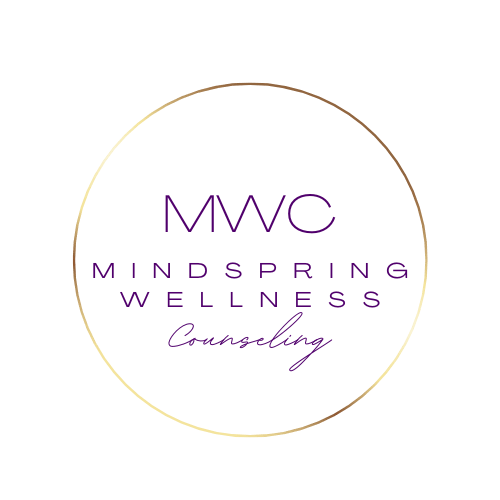When Your Body Keeps the Score: How Anxiety Shows Up as Pain in Black Women

If you’ve ever had neck or jaw pain that just won’t quit, despite stretching, massages, or countless doctor visits, you’re not alone.
Many Black women experience physical pain that seems to come out of nowhere. No injury. No clear diagnosis. Just a body that feels like it’s constantly on edge.
Here’s the truth: sometimes that pain isn’t “just in your head,” but it is connected to what’s happening in your nervous system. Anxiety and chronic stress can literally live in your body, showing up as muscle tension, headaches, digestive issues, or exhaustion. Understanding that connection is often the first step toward lasting relief.
The Mind-Body Connection (and Why It Matters)
When we spend years operating in survival mode, juggling work, family, expectations, and the pressure to stay “strong”, our bodies adapt by staying tense and alert. That’s your nervous system trying to protect you. But over time, that constant “on” state creates pain, fatigue, and inflammation.
For many high-achieving Black women, this isn’t about poor posture or lack of self-care. It’s about long-term stress that has never had space to settle. Our bodies remember the deadlines, the microaggressions, the caregiving, and the mental load that rarely gets shared. Eventually, it catches up.
How Anxiety Shows Up Physically
1. Tight Muscles and Chronic Pain
If your shoulders live somewhere near your ears or your back feels like it’s carrying a backpack full of bricks, you’re not imagining it. Chronic muscle tension is one of the most common ways anxiety shows up physically. The body stays braced, ready for the next crisis, even when nothing’s wrong.
This kind of pain often isn’t caused by an injury but by stress hormones like cortisol, which keep muscles tight and limit blood flow. The good news? When anxiety is addressed, pain often eases too.
2. Jaw Clenching and Headaches
You might notice yourself clenching your jaw during stressful moments or realize you’ve been grinding your teeth in your sleep. That habit, called bruxism, can lead to TMJ pain and frequent tension headaches.
It’s your body’s way of holding on when your mind feels like it can’t let go. Once you start calming the nervous system and working through the root of your anxiety, that tightness begins to release (and those headaches often become less frequent).
3. Fatigue and Restless Sleep
When anxiety runs the show, rest becomes work. Your mind may finally stop checking emails at midnight, but your body hasn’t gotten the memo. Racing thoughts, frequent waking, or restless nights can leave you feeling drained, even after a “full” night’s sleep.
This kind of exhaustion isn’t just physical: it’s emotional burnout. Approaches like cognitive-behavioral therapy for insomnia (CBT-I), mindfulness, and somatic grounding can help retrain the body to truly rest.
4. Digestive Upset
That “gut feeling” is real. The brain and gut are in constant conversation through the vagus nerve, which means anxiety can easily disrupt digestion. Bloating, cramps, reflux, or IBS-like symptoms often flare up when stress is high.
When mental health support and medical care work together, these symptoms can improve dramatically. Addressing anxiety helps calm the gut and vice versa.
The Science: Why Anxiety Feels Like Pain
When you’re under stress, your brain signals your body to release adrenaline and cortisol, great for short bursts of focus, but harmful over time. These hormones increase inflammation, heighten pain sensitivity, and slow down healing.
In other words: your pain is real, and your nervous system is trying to tell you something. Chronic tension and pain are your body’s way of saying, “I’m tired of surviving. I want to feel safe.”
A Real-Life Example: Anaya’s Story
Anaya, (name changed for privacy) a high-achieving Black woman in her early 40s, had lived with neck and jaw pain for years. She’d seen doctors, tried physical therapy, even switched pillows, but nothing helped for long. Eventually, her doctor suggested exploring the stress connection.
Through coordinated care with her primary provider, physical therapist, and trauma therapist using EMDR, Anaya started to notice a difference. As she worked through old survival patterns and processed the anxiety she’d carried since childhood, her body finally began to relax. The pain lessened, her sleep improved, and she felt more at ease in her own skin.
What Healing Looks Like
The most effective way to treat anxiety-related pain is through integrated care, addressing both the physical and emotional layers.
1. Medical Collaboration
Start with your primary care provider to rule out other causes and document symptoms. Be honest about your stress, sleep, and mood. These details help guide effective treatment.
2. Physical Therapy That Connects Mind and Body
A skilled physical therapist can help release chronic tension while educating you about how anxiety affects your muscles. When paired with therapy, this work becomes even more powerful.
3. Therapy That Targets the Root Cause
Trauma-focused therapies like EMDR (Eye Movement Desensitization and Reprocessing) go beyond talk therapy. They help your brain reprocess painful experiences so your body no longer feels like it’s in danger. For many high-achieving Black women, this can be a game-changer.
Everyday Tools for Calming the Body
Healing anxiety-related pain doesn’t just happen in the therapy room: it happens in the small moments, too. A few tools that can help:
- Deep breathing: Slow, intentional breaths calm the nervous system and lower cortisol.
- Progressive muscle relaxation: Tense and release each muscle group to retrain your body to let go.
- Grounding exercises: Use your senses to pull yourself back to the present when anxiety flares.
- Movement: Gentle stretching, walking, or yoga can help discharge pent-up energy.
Consistency matters more than intensity. Over time, your body learns that it’s safe to relax again.
The Bottom Line
If you’ve been pushing through chronic pain that no one can quite explain, it might be time to look at what your body’s been trying to say. https://mindspringwellnesscounseling.com/counseling-for-anxiety/Anxiety and trauma don’t just live in your mind. They live in your muscles, too.
With the right mix of medical, physical, and emotional care, healing is absolutely possible. You deserve a body that feels as free and supported as the life you’ve worked so hard to build.
Therapy is a great place to start. If you’re ready to get started, schedule a free consultation call today.

